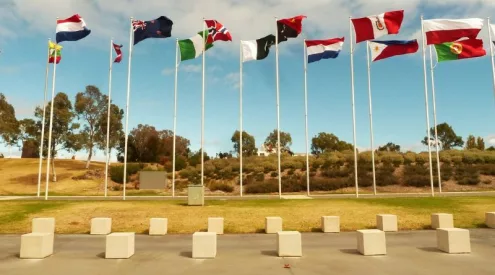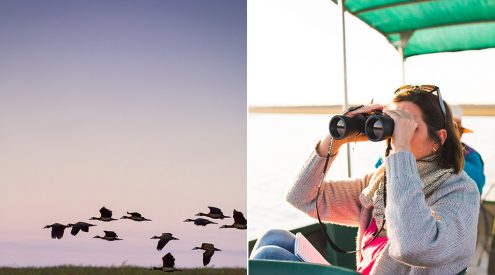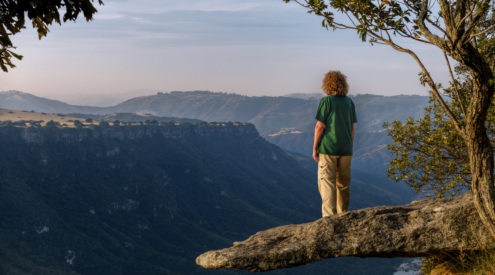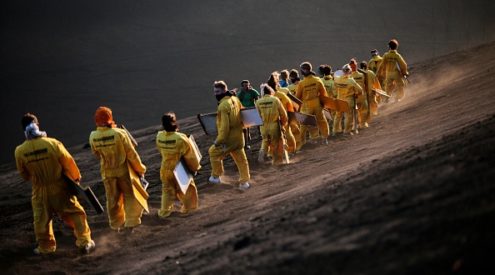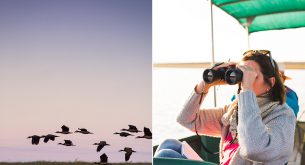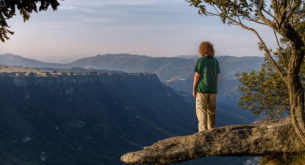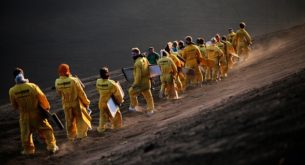The Department of Water and Sanitation has urged South Africans not to descend en masse on rivers and dams. This comes after President Cyril Ramaphosa announced the closure of beaches in the Garden Route and Eastern Cape between December 16 and January 3.
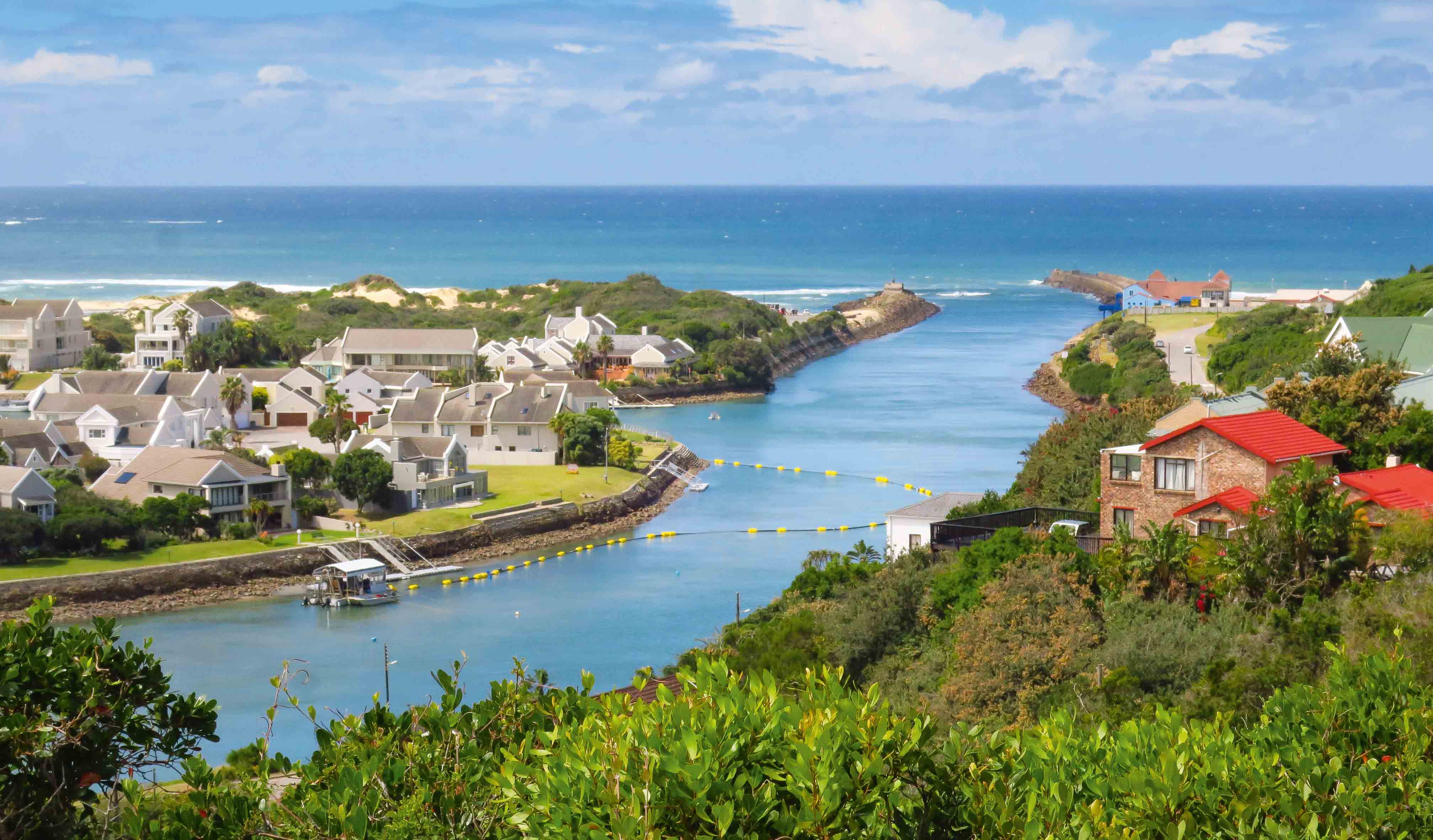
The Kowie River mouth still requires dredging to keep it open for modern pleasure craft. Image: Marion Whitehead.
Access to beaches in KwaZulu-Natal has been prohibited on public holidays until the first week of January 2021.
Sputnik Ratau, the Department’s spokesperson, said that historically the festive season records an increase in drownings and with beaches being closed in certain areas, people will turn to dams, rivers and pools.
‘Unfortunately, this results in increased drownings, especially among children,’ said Ratau according to TimesLive.
‘The department therefore urges parents to always accompany their children to ensure their safety when they go swimming,’ he continued.
Here are some of the NSRI’s water safety tips:
– When you arrive at the beach, point out to all of your family members and friends where the lifeguards are on the beach. Approach the lifeguards if you need help or if you are separated from your family.
– Always make sure you have a dedicated responsible adult watching over children when they are in the water swimming or around water.
– Boaters and paddlers should ensure that when your craft is underway everyone onboard should be wearing properly fitting life jackets.
– Don’t drink alcohol when you go boating or swimming.
– Always be prepared for an emergency and have the NSRI emergency numbers 112 and 0870949774 programmed into your phone.
– Have a plan in place in the event of an emergency to prevent panic:
– Make sure you have emergency numbers that you may need saved in your cell phone. Dial 112 from any cell phone in any emergency.
– Or simply Google Sea Rescue or NSRI for the closest Sea Rescue station’s telephone number.
– Check the wind, weather and tides before going to the beach, fishing or boating.
– Tell someone where you are going and when you are due back, and make sure that they know your route, your intentions and who to call if you are overdue.
– When climbing on rocks or fishing from rocks – never ever turn your back on the sea and we strongly advise rock anglers to wear a lifejacket and know when spring high tide is.
– If you are paddling or if you are on a boat, before you launch, download and always use NSRI’s free SafeTrx app – http://www.nsri.org.za/safetrx
– Know how to survive rip currents. If you swim between the lifeguard flags they will make sure that you are safe and well away from rip currents. If for some reason this is not possible do not swim. Educate yourself about rip currents, there is plenty of educational material here http://www.nsri.org.za/2017/01/beware-of-rip-currents/ including videos of what rip currents look like.
– Don’t attempt a rescue yourself. Call a lifeguard or the NSRI by dialling 112 and call the NSRI Emergency Operations Centre 0870949774 from your cell phone for help. If you see someone in difficulty call a lifeguard at once or dial the nearest Sea Rescue station from your cell phone. You should put this number into your phone before you go to the beach – get the emergency numbers for NSRI here http://www.nsri.org.za/emergency-numbers/ or you can Google for the closest NSRI station emergency number. 112 is a good emergency number – for any emergency – to dial from your cell phone. After calling for help try and throw something that floats to the person in difficulty. A ball, a foam surf board and so on.
– Drowning is silent. Watch children when they are in or near water. Do not be distracted by your cell phone or social media while you are looking after children in or near water you need to focus on them and nothing else. Adults who are supervising children should not be distracted or use their cell phone. It is not possible to concentrate on children in the water and be on your phone at the same time.
-Learn how to do CPR. Have the emergency numbers saved in your phone.
– Boaters, paddlers and sailors should wear bright neon clothing when they launch onto water.
– Have your details: name, contact telephone numbers for yourself and a responsible family member stenciled on your craft.
– Boaters, paddlers and sailors should wear appropriate gear for the water temperature and weather conditions forecast by SAWS (SA Weather Service), monitor SAWS weather forecasts, wear a properly fitting life-jacket (children should be fitted into child life-jackets). Carry red distress flares and know how to use them. Carry a cellphone in a water-tight plastic sleeve with NSRI RSA SafeTrx downloaded on your phone and use RSA SafeTrx. Wear a referee whistle around your neck. Stick reflective 3M tape on your craft. Make sure your craft is in serviceable and working condition. Make sure your cellphone is properly charged and have a VHF marine radio with batteries fully charged.
– Prepare and brief everyone involved for an emergency before you launch onto water.
NSRI are appealing to everyone launching any kind of craft onto water, coastal and inland, to download and use the NSRI RSA SafeTrx free cellphone app, have responsible family members monitor your trip using SafeTrx and carry safety equipment.
NSRI’s Free App, RSA Safetrx, is available for download from the Apple App Store and Google Play Store

